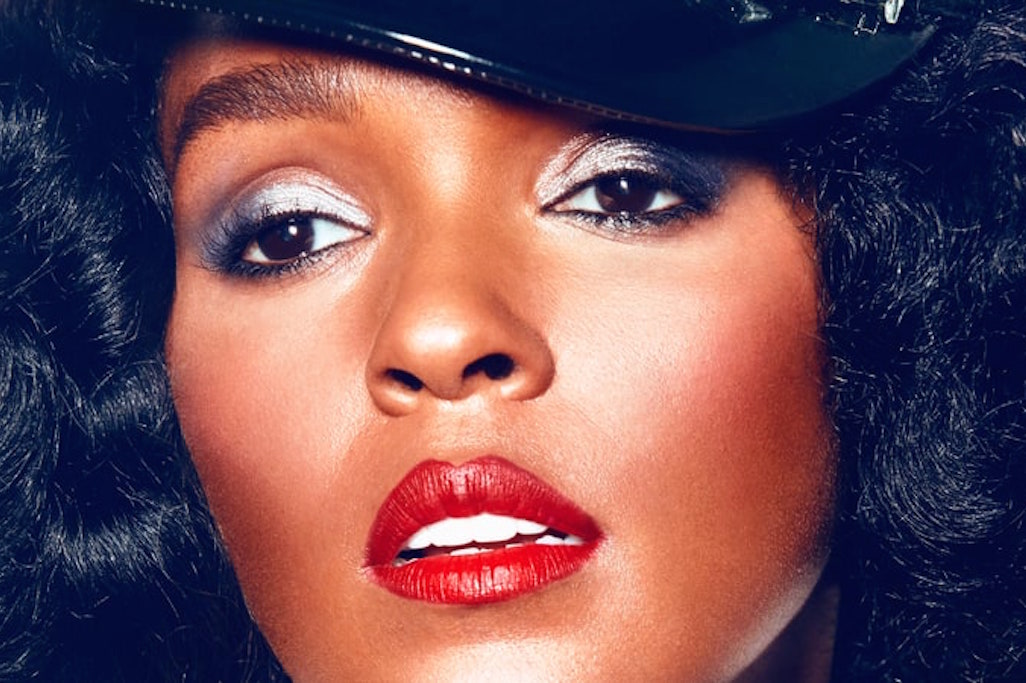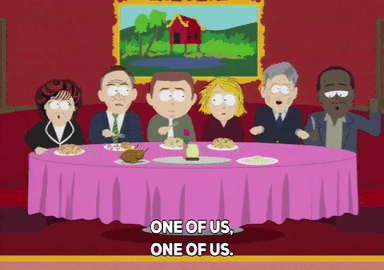Dear White Queers, Janelle Monáe Is Black. And That Matters.

Back in February, the internet exploded with the release of Janelle Monáe’s ‘Make Me Feel’. The song — a masterpiece that pays homage to the aficionado of flipping gender and sexuality scripts himself, Prince — openly celebrates queerness. It’s a message the music video, which featured Monáe seductively flirting with people of multiple gender presentations, further established.
We, the queer community, rejoiced. The song was hailed as a bisexual anthem, and rightfully so. In an interview with The Guardian published the day after it was released, Monáe — who had previously refused to answer questions about her sexuality — referred to herself as “sexually liberated”, and deemed ‘Make Me Feel’ “a celebratory song”. One of us! One of us!

But amidst the celebrations, I noticed that something kept happening. Time and time again, the white queer community didn’t mention Monáe’s race. It happened even when Monáe cast black actors as her partners in video clips, thereby explicitly making her message not just about queer desire, but specifically black queer desire. It happened even when Monáe released more songs, with lyrics that explicitly referenced her blackness.
So, dear white queers: Janelle Monae is black. And that matters.
Black Messages Missed
The erasure of Monáe’s blackness from the discussion around her is particularly jarring when you consider how prominently race features in her lyrics.
The same day Monáe released ‘Make Me Feel’, she also shared ‘Django Jane’. Both the song and its accompanying music video positively centre black womanhood — her lyrics are so heavy with reference that it’s difficult to pick only a few lines.
She talks about her working-class upbringing (“Momma was a G, she was cleanin’ hotels/Poppa was a driver, I was workin’ retail”), continuously focusing on blackness (“Yeah, we highly melanated”, “Black girl magic, y’all can’t stand it”), defying white male supremacy (“They been trying hard just to make us all vanish/I suggest they put a flag on a whole ‘nother planet”), and demanding space for female voices (“And hit the mute button, let the vagina have a monologue/Mansplaining, I fold ’em like origami”). Finally, she expresses her commitment to blackness: “For the culture, I kamikaze, I put my life on a life line”.
The music video centres black womanhood by heavily incorporating African diaspora aesthetics. It opens with Monáe sitting on a West African inspired throne, and later at the head of a Moroccan style dining table, always surrounded by black women wearing kufi caps (she herself sports one).
Monáe makes her agenda pretty damn obvious. The fact that ‘Make Me Feel’ and ‘Django Jane’ were released on the same day is not mere coincidence, but rather a very intentional pairing of two facets that make up her identity: queerness and black womanhood. To speak of the two separately is not only to misunderstand the artist’s intention, but to ignore intersectionality — the complex interconnected social categorisations that create overlapping forms of oppression and discrimination.
That overlapping matters, because it changes the experience. Janelle Monáe is a queer black woman, and to isolate any of those identifiers from the other is to misrepresent her.
Let’s Not Repeat History
On April 26, a day before the release of her complete visual album, Dirty Computer, Monáe officially came out as pansexual in an interview with Rolling Stone. “Being a queer black woman in America… someone who has been in relationships with both men and women — I consider myself to be a free-ass motherfucker,” she told the magazine.
‘Make Me Feel’ and ‘Django Jane’ were just a taste of the black queer love Monáe would explore on Dirty Computer. In classic sci-fi style, Monáe creates a cautionary tale of what the future holds if the conservative, Trump-era politics of the present are upheld and continue to further marginalise minorities. What follows is a black polyamorous love story, where love eventually overcomes the obstacles of a dystopic society.
There is no question that Monáe has created something revolutionary with Dirty Computer. But as with most queer revolutions, blackness is being erased from queerness.
It’s something that’s far too common in history — people of colour start queer revolutions, but are either not recognised as people of colour or not recognised at all. Think of Marsha P. Johnson, Stormé DeLarverie and Sylvia Rivera or Miss Major Griffin-Gracy, the queer and trans women of colour who sparked the Stonewall riots — names erased from queer history, that are only now being reclaimed. (If you don’t know what I’m talking about, it only goes to show how deep that erasure goes.)
So, dear white queers, Janelle Monàe is black. When you talk about how revolutionary she is, don’t omit that. It needs to be said, and said with intent. Stop erasing blackness from queerness again and again. Let’s not repeat history, but look to the future as Monàe invites us to do.
Janelle Monàe is black and so is her queerness.
—
Ana Maria Gomides is a full time cat mum and writer working out of Naarm/Melbourne. She writes reflectively on her experiences of race, womanhood, queerness, and mental illnesses.